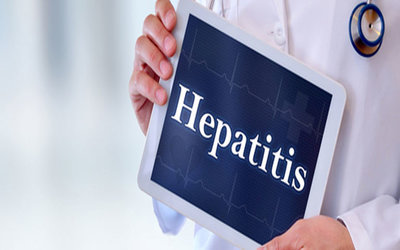The Liver is one of the most important organ in our body. Apart from its role in digestion, it has many other vital functions like removal of toxins and synthesis of proteins. Hepatitis is a disease that causes inflammation of liver and damages it. If unchecked, it can cause liver failure or liver cancer which can be fatal.
[the_ad id=”6287″]
This disease is known to be caused by mainly 4 viruses – A, B, C and E— and is largely preventable. Of the 4 viruses, hepatitis A and E are less severe & usually short-term infections (gets automatically cured in most cases). It is acquired by eating or drinking contaminated food/water.
Hepatitis B & C are more severe types of this virus and cause long term (chronic) infections. Infection with Hepatitis B or C virus can lead to serious liver damage which progresses from liver cirrhosis (complete scarring) to liver failure, and even liver cancer in some cases. \
Only treatment which is possible in last stages is liver transplant which is expensive, and the success rate is about 85 to 95%. Most people don’t know that they are infected with Hepatitis B or C, until severe liver damage and complications of liver failure occur years later, or they know it incidentally during routine medical examination.
Fortunately, Hepatitis C is curable now with new age drugs (in 3 to 6 months) if detected in early stages. Although Hepatitis B virus infection is not totally curable but can be effectively treated with medications in such a way that the most patients remain healthy during their lifetime. Vaccination for Hepatitis B is now done to all infants, and at-risk adults to prevent the disease.
According to WHO 2017 reports India has 4 crore people infected with Hepatitis B & about 1.2 crore people infected with Hepatitis C. However, over 90% of the people with hepatitis B & C do not know that they are infected because symptoms appear at very late stages of the disease. The virus can quietly attack the liver for years without causing any symptoms. Unless the infection is diagnosed, monitored, and treated, many of these people will eventually have serious life-threatening liver disease. Seeing the huge burden of the disease and high mortality if untreated, World Health Organization started observing World Hepatitis day on 28th of July every year and actively campaigning to eliminate viral hepatitis by year 2030. Government of India also joined the effort and launched national viral hepatitis control program.
Both the fatal infections (Hepatitis B & C) spread through contaminated blood transfer from infected person to uninfected one, by the means of sharing of injection needles among drug addicts, unhygienic ear piercing and tattooing, via unprotected sex, from mother to child, sharing of shaving razors, nail cutters, etc.
It is imperative to not underestimate the threat of Hepatitis. This disease infects and kills more people than HIV, Malaria and TB combined. More than 80% cases of liver cancer are due to viral hepatitis.
Who should get vaccinated for Hepatitis B?
- All children and adolescents younger than 18 years and not previously vaccinated should receive the vaccine
- People who frequently require blood or blood products, dialysis patients, recipients of solid organ transplantation and people interned in prisons
- People who inject drugs
- People with multiple sexual partners
- Healthcare workers and others who may be exposed to blood and blood products through their work
Source:

